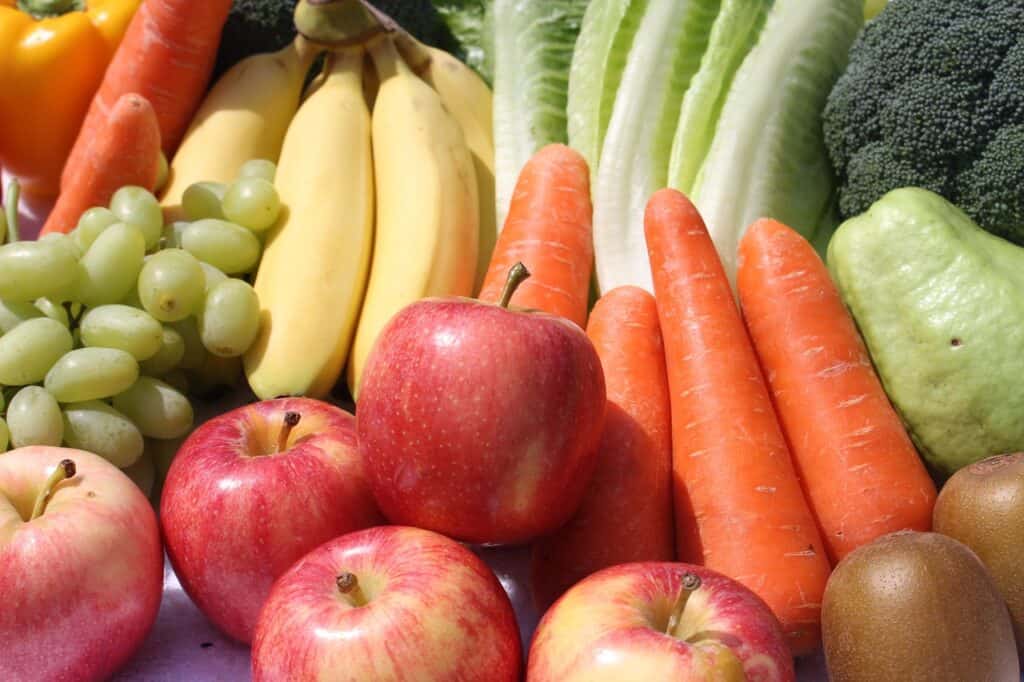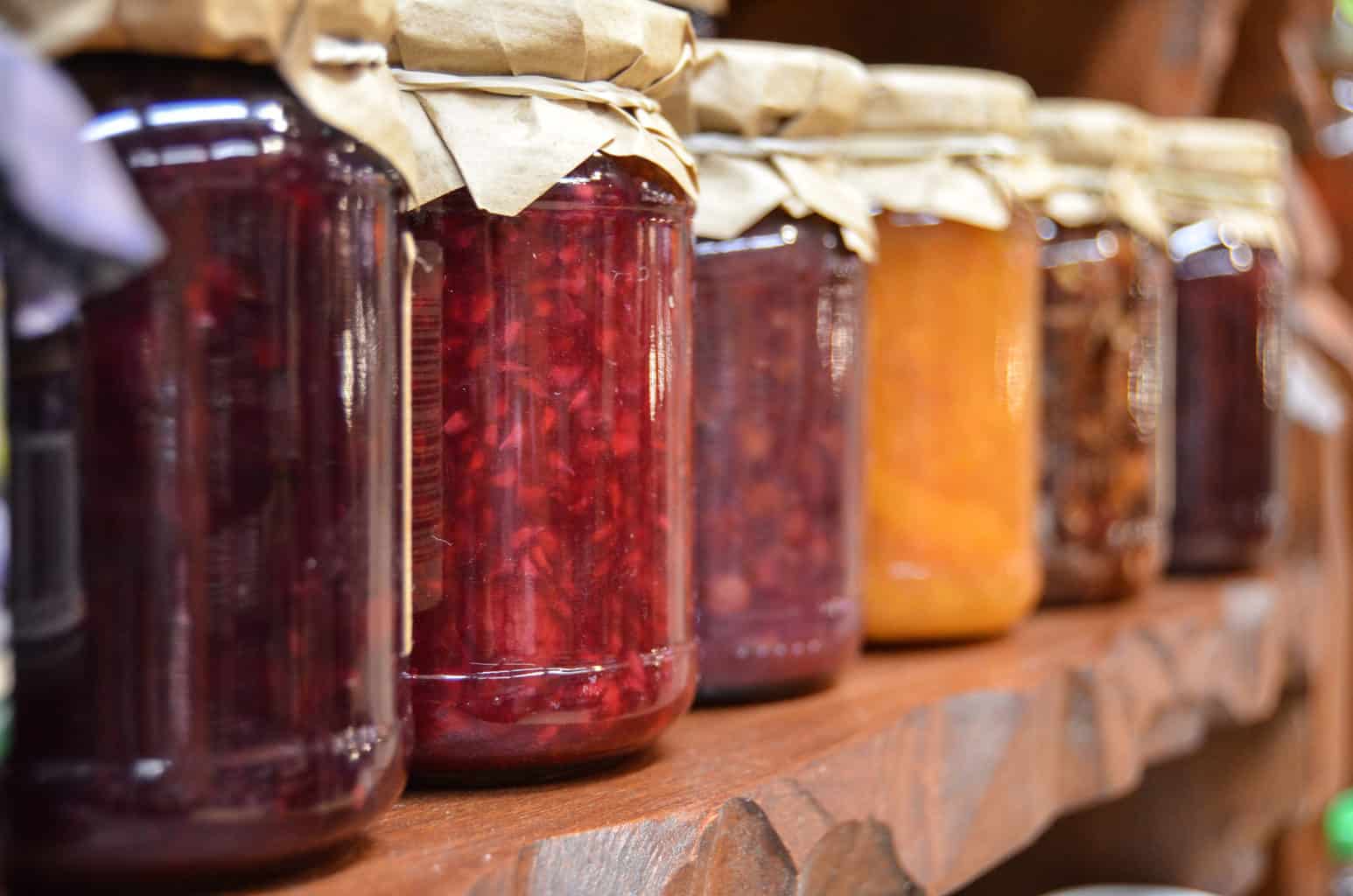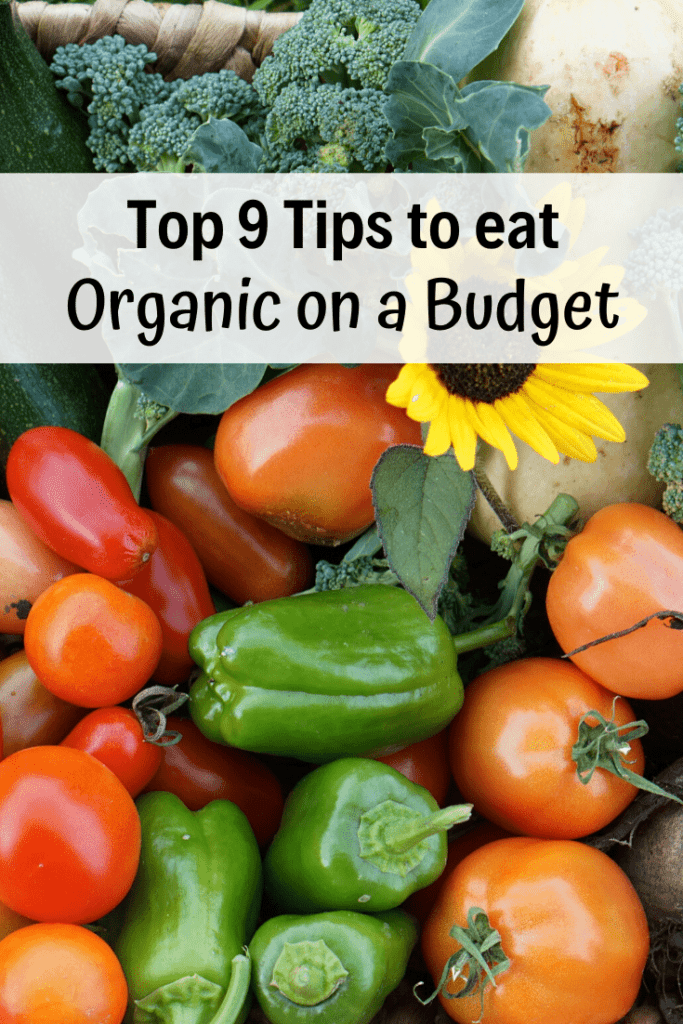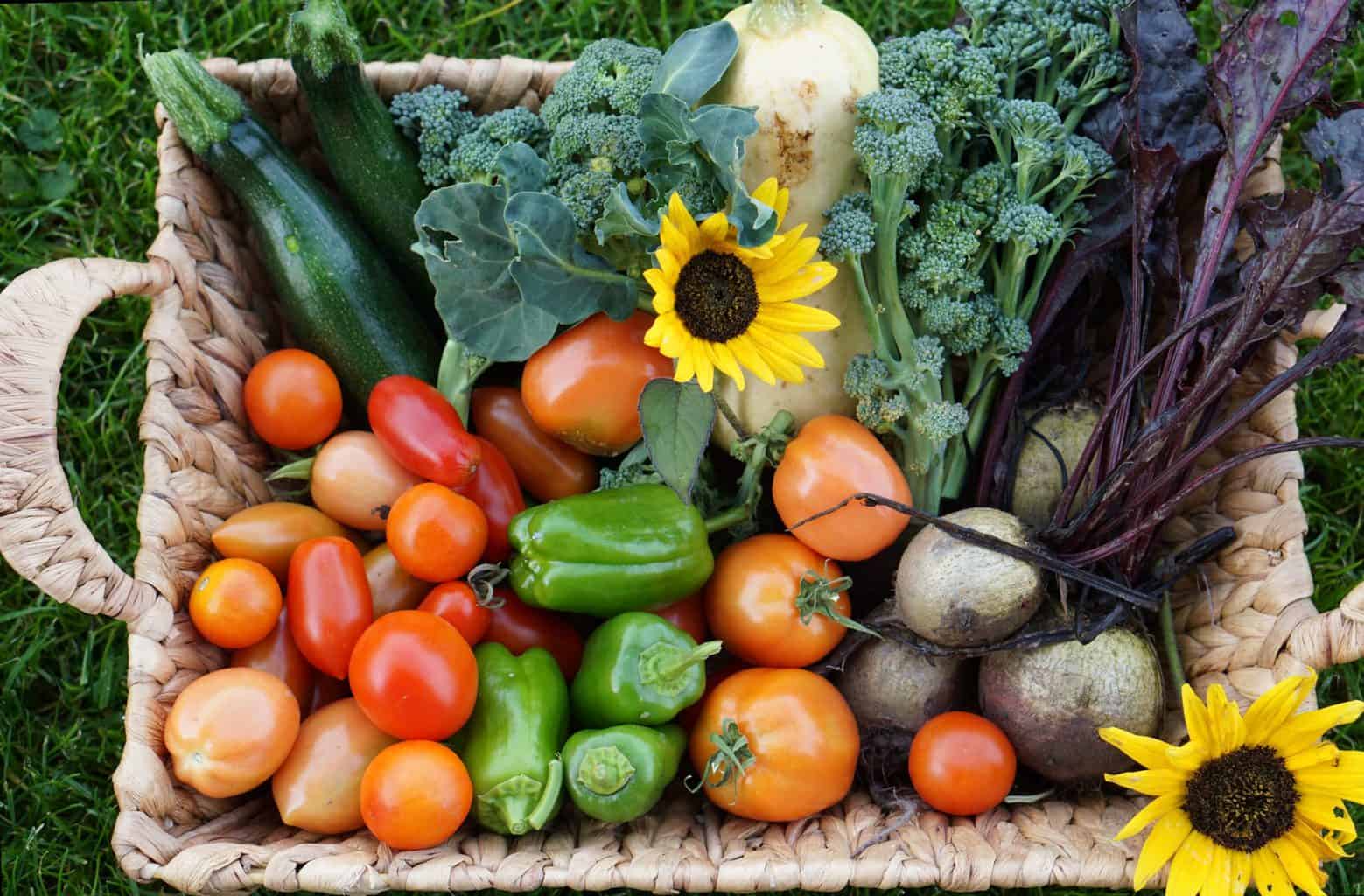Eating Organic and aiming for a healthy life style can be a challenge if you are on a budget. In this blog post I will be giving you some great tips to always eat Organic on a budget. I have put together my 25 years of experience in eating clean and organic food and leading a healthy life style.
The drive for eating healthy and organic has become a rising trend in the past decade with awareness on social media and the internet. Supermarkets and food producers are cashing in on this massively. The organic food industry is a multi-billion dollar enterprise and all want a slice of the pie. So how can we eat healthy and organic even if our budget cannot match the market prices always. Well lets dive first into the pros of eating Organic.
Pros of Eating Organic Food
The benefits of eating organic food far outweighs the conventional produce. Organically produced foods have no chemicals or pesticides sprayed on them, they are non-GMO, nutritionally high and high in taste. Its now known that food from conventional sources are the cause for many diseases and birth defects. GMO and pesticide laden foods can cause neurological problems, cancer, infertility and allergies to name a few. Because of all these we have been eating organic for almost 3 decades of our lives. The benefits far outweigh the negatives. The only negative is the high cost and sometimes the compromise on quality due to higher competition.
What is in it for a consumer?
Our concern as consumers is that we want to make our cash stretch and eat clean and organic on budget. Some of the benefits of eating clean for you is that, your body gets the best nourishment filled with vitamins, taste with no compromise on quality. Since I live in Switzerland, these tips will vary from American readers or readers from other parts of the world. These tips should give you an overview to adapt to your country easily.
Lets dive into some of the top tips I use to eat organic on budget since more than 2 decades.

Tips to eat Organic food on budget
1. Grow your own food
With smart cities popping up everywhere, and more people embracing an urban life-style this is difficult. But try to beat the odds if you can. In case you live in an apartment or high rise, try to plant at least fresh herbs and vegetables which can easily thrive on your balcony. For a start, vegetables which thrive on a balcony are bell peppers, tomatoes, chilies, ginger, fresh herbs like parsley, coriander and basil. They don’t need much space. The options are unlimited if you can make some place.
Balconies are usually placed in the most sunny part of your flat . This is at least the case in Europe generally. I have been sharing a lot of our gardening success with you for the past 2 years on this blog, take a look at my gardening posts for some ideas.
Rent an allotment plot
Since many of city dwellers have had enough of living in concrete jungles, some have started renting some allotments outside city limits to garden. You will generally see garden plots when you travel around in Northern Europe. These allotments are usually leased for a period of 5 or 10 years in Switzerland. Try to see if these options are available in your country. In addition to that you will also have lots of inputs to enrich your skills in such a gardening community.
2. Buy in Bulk
This is a something I cannot do without. I save tons of our hard earned cash by buying in bulk. For the past 2 decades, we have been buying our dry goods once in a quarter from health food super stores for many reasons. We do a big shop once in 3 or 4 months for the basic staples like all the grains, spices, oil, dry fruits, nuts and seeds etc., you get the picture. I also order from an online store called Cosmoveda, a German company which also stocks on organic Indian pulses, spices and specialty foods. This store is a boon to me because these are not so easily available here in Switzerland. (Especially if you want Organic Indian pulses and spices.)
Before we had our present home, we bought in bulk produce to last the winter. We got canned produce and fresh produce like pumpkins, carrots directly from an organic farmer and stocked them in autumn. This used to last us till the spring.
Look out for special offers in your local Supermarkets.
Snap up on offers like – buy 2 and get 1 free in the organic section of your supermarkets. I do that all the time with dry staples like rice, flour, sugar etc. We don’t have coupons in Switzerland, but often a lot of organic dry staples are reduced upto 20% periodically with this buy 2 offers. This is when I stock up on oil, rice, grains, pastas etc.
Pros of bulk buying
As a result of buying in bulk you also save on transportation costs, time and also the added monetary savings of bulk buying. I wouldn’t call myself a prepper, but I would be uneasy if I didn’t have a storage for 3 months of food supplies in our larder. This trick should help us in case of emergencies like economic crisis, wars or other calamities. My husband and I have practiced bulk buying for the past 25 years. We are right now undergoing a financial transition and buying in bulk has saved me for the past 2 years. We have managed to keep our food budget low and at the same time eat only organic.
I have allotted a whole annex to store dry staples and organized the pantry to keep track of supplies whenever I run low. To stay ahead of the game, I did a whole re-organization a couple of years back after moving to this new home. This system keeps in check any wastage, expiry dates and also key to keeping this area away from bugs or insects.
Cons of bulk buying
Needs good storage facility. You will also need a cool and dry facility to keep the unwanted creatures away from your food. Initial cost will be more and you have to plan ahead. The risk of buying too much and food getting spoiled or expiring has to be calculated. To avoid this make sure you buy food with longer shelf life. Dry staples like rice, whole grains, sugar, pulses keep up to a year in the right storage conditions.
3. Canning fresh produce to eat Organic on a budget

Since we started growing our vegetables, I have embraced canning. In this way we are able to enjoy the excess produce from our garden well into spring or even until the next harvest. This method works even if you don’t have a garden. Buy fresh produce in season at an organic farmers market and can them. Produce in season is always cheaper and you get to support your local farmer too.
Some of the fresh produce I regularly can are cabbages, tomatoes, berries, apples and convert excess vegetables into pickles etc. I make jams and jellies during our berries season. That way I don’t have to pay high prices for small jars of organic jams from the stores. Summer and autumn are very busy months for me, because of canning duties.
Often organic canned produce are cheaper than fresh produce. Hence, if you have space in your pantry or basement buy and stock things like canned tomatoes, peas, beans, fruits etc. Moreover, the tomatoes from the tin taste a lot better compared to the fresh tomatoes during the winter months. I had to stock crates of them last year due to a bad harvest and summer.
4. Freeze fresh produce to eat organic on a budget

Frozen organic produce is often a lot cheaper than fresh produce. If you have space in your home, its wise to invest in a good freezer. The first year of our gardening saw us giving a lot of our precious produce away to friends and neighbors because we didn’t have a big freezer. For that reason alone, the second year we invested on a big freezer which luckily fits well in our laundry room at the basement. And for the past 2 years, I have been using it to store the surplus produce from our garden in addition to some which I top up from the supermarket.
5. Cook from Scratch to eat organic on a budget
One of the best tips to eat organic on a budget, is to learn to cook from scratch. This is what I have been doing since decades. Cooking at home from scratch is easy on your purse too. Plus there is the added benefit of high quality ingredients without added sugar, fat or salt. Rest assured, there are also no additives. I even mill the grains I use for baking and cooking. If you have enough freezer space, cook some extras for freezing so that you will not reach for those expensive ready meals in case of emergencies. We rarely ever go to a restaurant other than while travelling, so more savings for us. Moreover, eating out in Switzerland is very expensive. Because of these reasons, I have learnt to make gourmet food over the years for a fraction of the restaurant bills.
6. Guide to Dirty dozen and Clean 15 List
Every year ewg.org brings out the list of foods which are in the “Dirty Dozen” and the “Clean” list. There are also pesticide free foods which are in the list that you can consume without having to pay too much. Sometimes its not worth that much more to buy an old and wrinkled organic produce for that extra price, just because its organic. I would rather buy the fresh and juicy ones that are in the clean list.
7. Stay Organized and Plan Meals ahead
Key to eating organic on a budget is to get organized in the Kitchen.

Keep a well Organized Pantry and Fridge.
Store food in air tight containers in the pantry within easy reach and check for expiry dates. Try organizing and cleaning your pantry at least once in 3 months. By doing this you will also be able to limit expensive foods which you no longer use in your meal planning.
Buy fresh produce without packaging and invest in good fridge containers that will keep your produce longer fresh. I use genuine Tupperware Fridge Smart for this, and so far I have minimal to zero food waste. These special clear containers helps me to stay organized and plan my meals accordingly. You can read about my tips for Zero Food waste Fridge Organization from an earlier blog post.
8. Meal Prep if needed
If you are the one who meal preps its an added bonus. I personally don’t meal prep, just good organization both in the fridge and pantry helps me to stay ahead. If you are meal prepping, my suggestion would be to first shop fresh produce on offer and then plan your menus accordingly.
There are always fresh produce which can be stored for months in proper containers in the fridge. In my fridge I have standard staples like carrots, beetroots, ginger, apples, cheese and lemons which keep well for a more than month. Other vegetables which can be stored long without refrigeration are potatoes, onions and garlic. Make sure to store them in a cool and dark place and apart from each other.
Butter is another such staple which I store for more than a month. If I have excess butter almost reaching use by date, I make it into ghee and ghee has a longer shelf life without refrigeration.
9. Budget your income for food
If you are a budget-er then great , you will not be needing this tip.
My husband and I used to budget our income at the initial stages of our marriage. Now 20+ years later, we never really budget. The only consolation is that I kind of have rough ball park on what we spend on food. For the past year, I kind of have a rough figure of what I want to spend on my weekly groceries, but it doesn’t work always. I guess we don’t spend that much since we are also vegetarians. We seldom ever eat out so that saves us a lot of money and I cook almost all our meals from scratch.
The only thing I do try to cut down nowadays is on cheese due to 2 reasons. Good quality organic rennet free cheese is expensive. The other reason is my daughter is lactose intolerant that makes it difficult for me while shopping. We get grass fed raw milk from the farmers and its worth the extra we pay for. So I try to kind of balance where its needed and not break my head too much on trivia.
On this note I will wrap up my top tips to eat Organic on a budget post. Thank you so much for taking the time to read this post.
I will list a few well known Organic brands in Switzerland and Germany for your information, in case you happen to live in Europe or visit Europe.
Well known good quality Organic Brands
- Demeter
- Coop- Natura plan (in Switzerland)
- Bio Suisse (in Switzerland)
- Bio Land
- Davert
- Rapunzel
- Naturata
- Bio
Your feedback is valuable
Did you like my Top Tips to Eat Organic on a Budget post? What are your tips ? Leave me a comment, I’d really love to know! And would like you to share your insights into this small community.
Have some feedback you’d like to share? Leave a note in the comment section below!
Thank you so much for visiting Vial Fair Living – we’re so happy you’re here! and thanks for taking the time to read this post. I would love it, if you can share this post using the social media buttons you see next to the post.
Pin it for Later – Top Tips to Eat Organic on a Budget



2 comments
Nice Article it’s really helpful
Thanks. I plan to share more such post, concerning current economic crisis. Stay in touch.